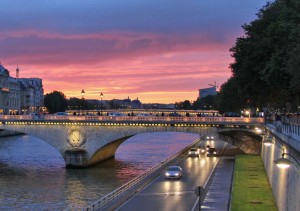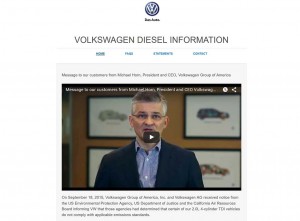The City of Lights might more accurately be called the city of smog these days. Paris has become one of the world’s most polluted cities, and automobiles catch much of the blame. Over the last few years that has forced Parisian officials to implement occasional limits on the number of vehicles that can drive in the city.
Increasingly, however, their focus has shifted to diesel-powered vehicles which critics claim produce a disproportionate share of smog-causing oxides of nitrogen. And, in the wake of the scandal involving cheating on emissions tests by Volkswagen AG, there’s a renewed push to limit, even ban diesels from Paris roadways.
But the French capital is not alone. While proponents of the high-mileage technology contend VW’s cheating was a unique and rare event, critics counter that diesels simply can’t be made clean enough to meet modern needs. And that threatens their viability in not only U.S. but even Europe, where they currently account for about half of the vehicles sold each year.
“Clean diesel doesn’t exist,” Emmanuelle Cosse, head of France’s green party. “We must stop lying to the French by inciting them buy so-called environmentally friendly cars.”
(VW promises fix for diesel problem “ASAP.” Click Here for more.)
European regulators have traditionally favored diesels for much the same reason as consumers there do. The engines burn less fuel than conventional gasoline engines. That means lower energy costs for owners, and lower levels of CO2, a gas linked to global warming.
But while that has been the main focus of Europe’s emissions rules, regulators in the U.S. – and California in particular – have focused on other pollutants flowing out of diesel engines. That includes ultra-fine particulates, linked by some studies to cancer, and those smog-causing NOx emissions.
(New VW CEO Mueller faces long list of major problems. Click Here for the latest.)
Manufacturers insist they can clean up those pollutants with things like particulate traps and special systems designed to break down oxides of nitrogen into their harmless components. The latest emissions technologies have enabled carmakers like Mercedes-Benz and BMW to sell diesels again in California, which has even tougher standards than the rest of the U.S.
But that could change as a result of the VW scandal – in which the maker now admits it used special software, dubbed a “defeat device” to reduce emissions during testing. Otherwise, vehicles like the Jetta and Golf TDI models actually produce up to 40 times the allowable emissions numbers.
“The circumstances involving a single manufacturer do not define an entire technology, or an industry,” said the Diesel Technology Forum, a Washington-based trade group, in the wake of the VW revelations. “Nothing has changed the fact that the diesel engine is the most energy efficient internal combustion engine,” and one capable of “low emissions,” the group insists.
In the U.S., where diesels have only begun regaining traction after largely falling out of favor in the late 1980s, analysts expect to see the technology take a big hit. If nothing else, VW has temporarily put a hold on the sale of its 4-cylinder diesel models until it can fix its emissions problem. But other manufacturers are likely to take a hit, as well, according to David Sullivan, a senior analyst with AutoPacific, Inc.
In Europe, diesels currently account for about half of all new sales. If anything, many national governments have encouraged the growth of the technology, often by subsidies that make it far cheaper than costly gasoline – in direct contrast to the U.S. where diesel fuel, at times, can cost as much as $1 a gallon more than gasoline.
France has been among the strongest proponents of diesel over the decades, and the technology now accounts for about 70% of the vehicles on its highways.
So how Parisian officials would reverse course is far from clear. But city officials point to the pollution problems they have been experiencing in recent months, atmospheric NOx at one point rising to levels even greater than in smog-choked Beijing.
Swiss regulators could boost the cause of those calling for a shift in direction on diesel. The government there last week said it would ban sales of vehicles that don’t meet the next level of European emissions standards, even though that’s not yet an EU requirement. So-called Euro-6 rules are virtually as tough on particulates and NOx as current American mandates.
California could hold the key to what happens in the U.S., meanwhile. Under federal law, the state has the authority to set its own emissions rules which are routinely tougher than national standards. And another 11 states have now adopted the stricter rules. California alone is the country’s largest diesel market, so if it closes the door on the technology, observers agree, the industry would likely find it tough to keep going with diesels in the U.S.
Automakers insist the VW scandal shouldn’t be the reason for diesel’s demise. But even European manufacturers may be looking for alternatives. During this month’s Frankfurt Motor Show, senior Volkswagen officials outlined plans to offer “electrified” versions of virtually every model the company sells under its various brands, from micro-hybrids to plug-ins to pure battery electric vehicles.
As a result, said Heinz Jakob Neusser, R&D chief for the VW brand, the maker will phase out some of its conventional, fossil-fuel models, including diesels.
(Will other automakers, including Mercedes and Chrysler, be caught up in diesel scandal? Click Here to find out.)



This is a typical knee-jerk reaction from politicians without a clue.